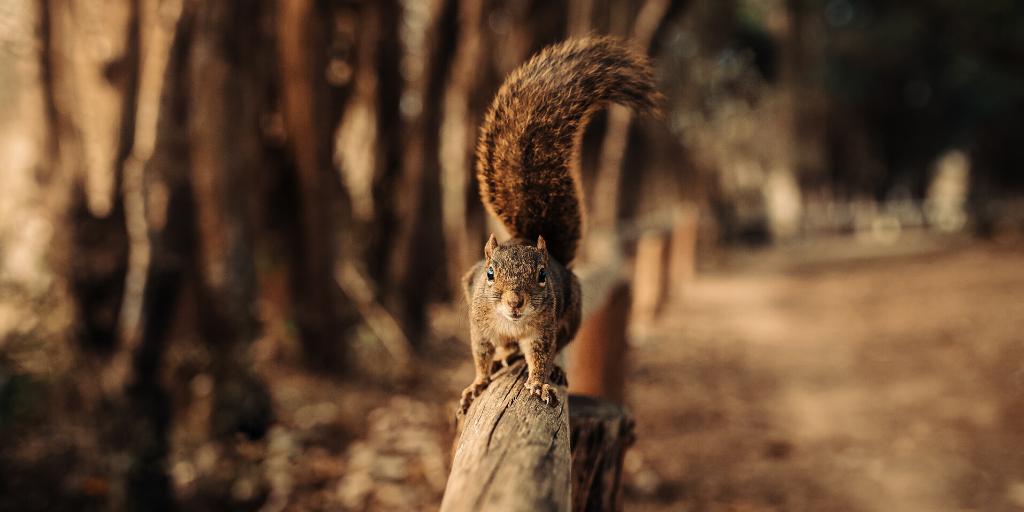In the UK, it is illegal to release a captured grey squirrel into the wild. However, there's a very different stance on red squirrels; they are a protected species under the Wildlife & Countryside Act 1981, making it illegal to intentionally injure or kill one. There are minor differences in appearance - their colours vary as their names suggest, and red squirrels have distinctive tufts of fur on their ears which you won't find on grey squirrels. However, what makes our approach to dealing with these pests differ so much?
It's believed that there are over 2.5 million grey squirrels in the UK. They're not actually native to the UK - they were introduced in the late 1800s. Unfortunately, we underestimated the impact that the non-native species would have on the population of the red squirrel. Studies show that there are now less than 150,000 red squirrels in the UK, and this is mainly down to the introduction of grey squirrels. An overwhelming majority of the population has moved towards the very north of England, Wales and Scotland to live in secluded and natural environments, although the existence of red squirrels in the UK remains under serious threat.
Both species of squirrel have similar diet and habitat requirements, but the grey squirrel tends to come out on top when there's competition. One of the distinct differences between red and grey squirrels is that the greys grow to a larger size on average. This naturally makes them more dominant and is just one of the factors that will push red squirrels away.
Another issue is that grey squirrels will obliterate their available food sources. Both species will eat a range of fruits and nuts, but grey squirrels will eat almost anything in densely-populated areas such as smaller rodents and insects. They're also able to digest more tannin that is found in a lot of natural and raw berries and nuts than red squirrels. This is problematic as they'll still eat the foods that are low in tannin, leaving very little option for the red squirrels.
Finally, grey squirrels carry a disease called Squirrelpox. While they remain unaffected when carrying the disease, it can dangerously impact the red squirrel populations across the UK. This is the most prominent disease that is harming the red squirrel population, but there are others that are having an effect such as leprosy and adenovirus.
During the winter months, squirrels across the country will be looking for warm places to make dens. While they will look for warmth, they won't hibernate as they're unable to store enough energy. Instead, they'll become less active and spend more time trying to keep warm. This makes your property a great place for them to occupy. If you believe you have a squirrel infestation in your home, your safest option is to book an inspection with an expert.
At APC Management we can deal with grey squirrels on your property, we offer a discreet same or next day service, minor proofing services, and advice is given before, during, and after the issue is dealt with.





